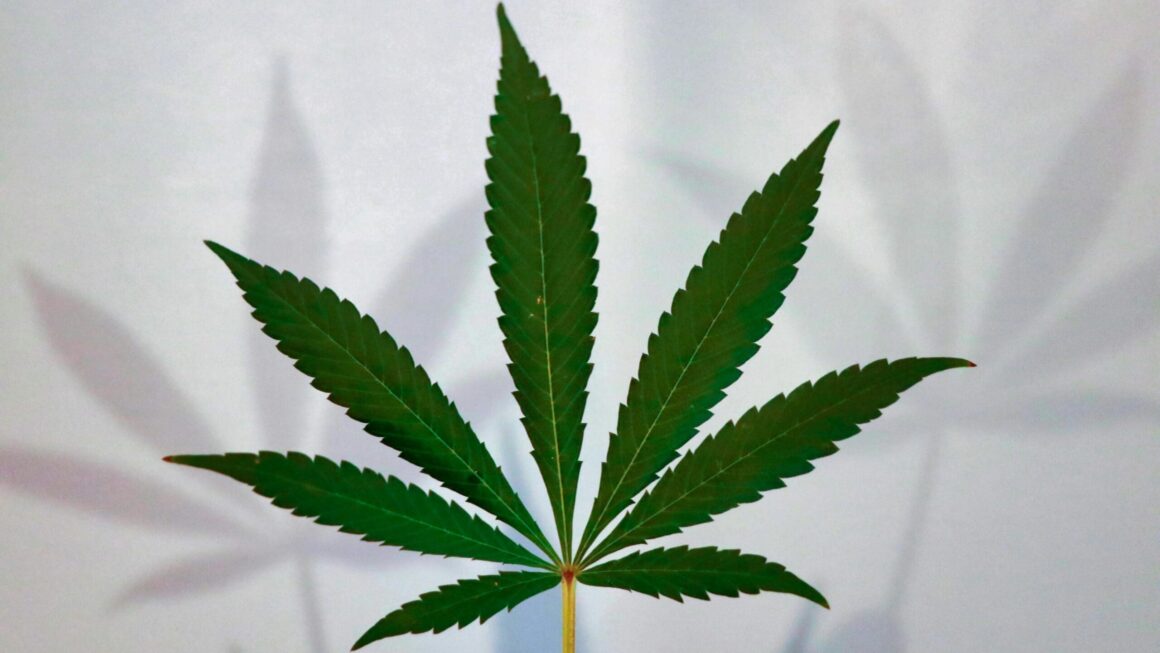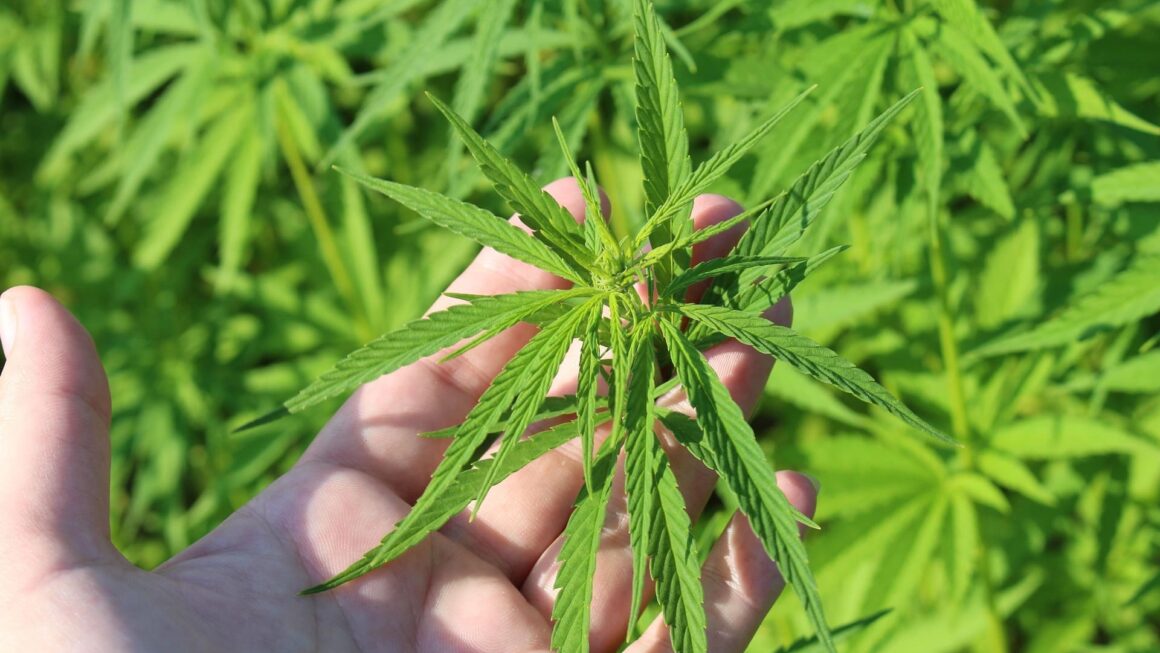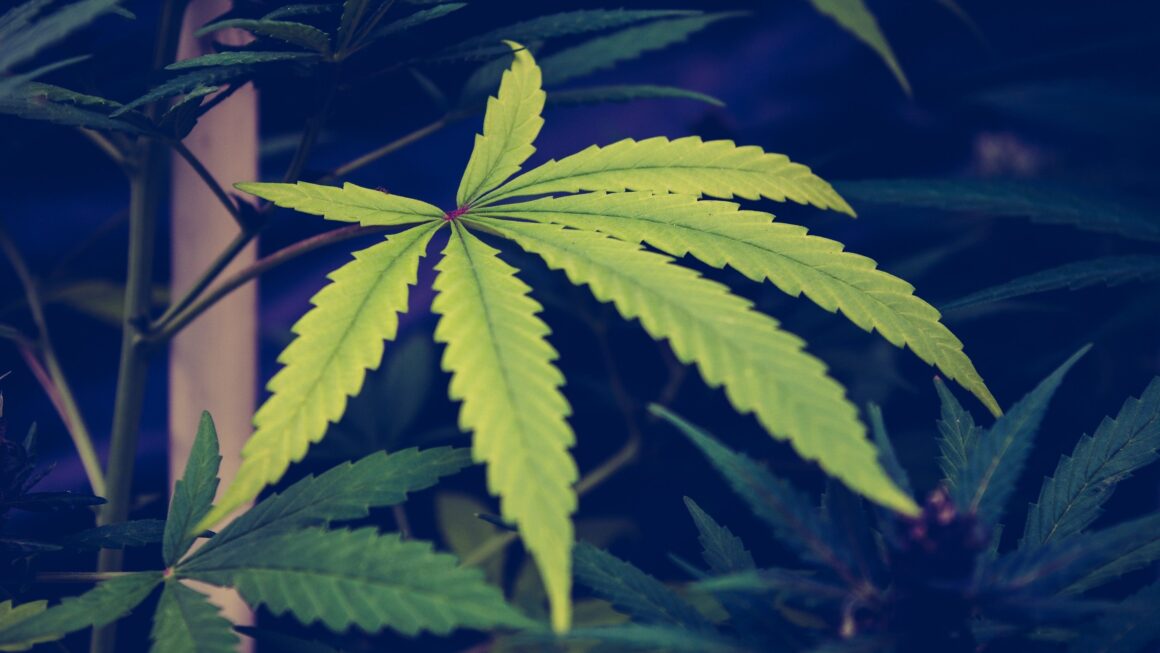A GOP senator says he’ll be filing a bill next week to protect the hemp industry from an impending federal ban on most cannabinoid products. He’s also calling out alcohol and marijuana interests for allegedly “join[ing] forces” to lobby in favor of the prohibitionist policy change, which will restrict access to a plant and its derivatives that are often used therapeutically—including by members of his Senate colleagues’ families.
In an interview on “The Chris Cuomo Project” podcast that was posted on Thursday, Sen. Rand Paul (R-KY) previewed his plan to push back against the hemp ban that was included in major spending legislation President Donald Trump signed into law last week.
Paul has been sounding the alarm for weeks about the potential consequences of the hemp recriminalization provisions, which he says would cause mass job losses and a $25 billion industry to be “wiped out.”
As he previewed during a separate webinar organized by the Kentucky Hemp Association on Wednesday, the senator told Cuomo that he intends to introduce legislation next week that would make it so state policy regulating hemp cannabinoid products—with basic safeguards in place to prevent youth access, for example—”supersedes the federal law.”
“Now, traditionally, if the courts interpret it, federal law trumps state law. But if you write a federal law that says specifically that this federal law trumps your other federal law” it can overrule the hemp ban that’s set to take effect around this time next year, Paul said.
“But the irony of it is, is the states that had limitations [such as] you can’t buy under 21, all of that’s being superseded by federal law that doesn’t do anything and just sort of bans the product but doesn’t do anything about the age limits,” he said.
The senator also took aim at certain alcohol and marijuana businesses that he says joined prohibitionists in pushing for the hemp ban because they saw that market as a threat to their bottom line.
“The cannabis industry saw it as competition. Alcohol saw it as competition…and then people from the Stone Age like [Sen. Mitch McConnell (R-KY)], who saw “Reefer Madness” in 1925, live at the matinee, are still thinking: ‘The world’s going to the devil. We are going to all die if the Reefer Madness is exploded,’” he said. “And really, it’s a lot more complicated than that.”
“It was kind of lame to hear some of these people from the alcohol industry that were lobbying against [his amendment to strike the hemp ban language]—but to have the alcohol industry sit around a big table with me, and they sound mad that they would ban alcohol–but they just want to ban hemp but they’re still fine with alcohol–the hypocrisy of it comes in bound.”
At the core of the issue, from Paul’s perspective, is a question of civil liberties and adults’ freedom to choose to use cannabis—including as an potential alternative to pharmaceutic drugs like the opioid Percocet, which he described as “legal heroin.”
“I have people come up to me on the floor of the Senate, and they said, ‘Well, my mom takes a gummy to sleep at night, and it’s like, who am I to tell somebody’s mom or grandma [that they can’t use that alternative treatment option?]
Drug companies are able to peddle their products freely, “but you can’t take a gummy with a little bit of THC in it from a plant” under the newly enacted law, Paul said. “I’m disappointed in it, but it’s a big industry.”
“I’m not done fighting on, and we’re going to see if we can get it reversed.”
“It’s just none of your damn business” if a adult uses cannabis, he said. “I’m fine with the rules— keeping it out of kids’ hands—but by making it illegal, you’ll actually drive it back into the hands of kids, because it will go back to the black market. And guess what? When you buy things from a drug dealer around the corner, they don’t check your ID. When you go to the store, they’ll check your ID. So legal things are actually much better controlled than illegal things.”
Meanwhile, at the Kentucky Hemp Association event on Wednesday, Paul told stakeholders about his forthcoming legislation to ensure states have the autonomy to regulate cannabinoid products.
“I like the approach of doing it [this way], because it’s not a direct repeal, and we’re [doing] an end-run around him,” Paul said, as Law360 first reported. “And if a state doesn’t have laws—and they want to have a hemp industry—they’d get pretty busy at their state legislature and go ahead and put something in place so they can have a hemp industry, because I don’t think you can have one under McConnell’s law.”
“I probably would just be a little bit laissez-faire and let the states figure it out,” he said. “What I like about the approach is, I’m avoiding the debate completely—how many milligrams, what percent everything is. I’m just going to avoid that completely.”
Stakeholders say the new definition will devastate the market, as even non-intoxicating CBD items typically exceed the proposed 0.4 mg THC per container limit that is set to be enforced around this time next year.
Since a majority of his colleagues in the Senate opted to advance the appropriations bill, however, “now I’m asking them to repeal something they’ve already voted for,” Paul said. “But if I ask them to vote for language that lets their state make the decision on regulation, we might get more votes.”
“A bunch of Democrats voted against us because the spending bill, the [continuing resolution, or CR], was all about opening government, and they were told by their leaders [that] this is about opening the government: ‘We don’t want you to mess with the CR and all this,’” he said.
“But it was also kind of a lie, because they kept saying it was a clean CR—and this is a policy that they stuck on a clean CR, so they weren’t being honest. But in the end, there are more votes out there that we could get,” Paul said.
The hemp debate has made some strange bedfellows, with libertarian-minded lawmakers like Paul finding themselves aligned with Democrats such as Rep. Ilhan Omar (D-MN) on the need for regulations over prohibition.
Omar, co-chair of the Congressional Cannabis Caucus, is actively rallying federal legislators representing Minnesota to push the Trump administration to scale back the ban on hemp-derived THC by providing a carve-out for states that want to regulate cannabinoid products.
Minnesota’s Democratic top prosecutor, Keith Ellison, was one of 39 state and territory counterparts who sent a letter to congressional leaders earlier this month that voiced support for the hemp provisions of the spending bill Trump signed. Ellison later defended his decision, in part by arguing that states with regulations in place for cannabinoid products like Minnesota should not have to worry about hemp entering their market from unregulated, out-of-state operators.
On the other end of the debate, Rep. Andy Harris (R-MD), who helped secure the hemp re-criminalization language, said this week that he’s not concerned about attempts to undercut the enacted law, brushing off arguments about the possible consequences of the policy change as “desperate mistruths from an industry that stands to lose billions of dollars by selling intoxicants to children.”
Overall, there’s been widespread outcry over the pending hemp re-criminalization law, drawing criticism from parents of cannabis patients, veterinarians and influencers like Joe Rogan, for example.
In response to the hemp ban, Rep. Nancy Mace (R-SC) filed bill that would strike the contested provisions of the appropriations legislation. But some stakeholders worry that approach could backfire, and they’re hoping to see bipartisan bills introduced in he near future that would provide a robust regulatory model for intoxicating hemp products as a viable alternative to blanket prohibition.
Meanwhile, GOP political operative Roger Stone said this week that President Donald Trump was effectively “forced” by Republican lawmakers to sign the spending bill with the hemp THC ban language.
However, a White House spokesperson said prior to the bill signing that Trump specifically supported the prohibition language.
The Democratic governor of Kentucky said last week that the hemp industry is an “important” part of the economy that deserves to be regulated at the state level—rather than federally prohibited, as Congress has moved to do.
Also, a leading veterans organization is warning congressional leaders that the newly approved blanket ban on consumable hemp products could inadvertently “slam the door shut” on critical research.
While many hemp stakeholders say the ban would effectively eradicate the industry–even applying to nonintoxicating CBD products that people use for medical reasons—there’s latent hope that they can strike a compromise deal with lawmakers before the prohibition is implemented this time next year.
Lawmakers such as Sen. Chris Van Hollen (D-MD) also say that window could provide an opportunity to advance legislation to create an alternative regulatory model for consumable hemp products.
There were attempts by GOP lawmakers in both chambers to strike the hemp prohibition provision. But the proposed amendments from Paul and Rep. Thomas Massie (R-KY) did not make it into the final package.
Massie tried to revive the push in the House with his own amendment mirroring Paul’s, but the prospects of its adoption were dubious at best, as there was generally consensus within the Republican caucus that the spending bill should advance without further modifications that could have sent it back to the Senate.
—
Marijuana Moment is tracking hundreds of cannabis, psychedelics and drug policy bills in state legislatures and Congress this year. Patreon supporters pledging at least $25/month get access to our interactive maps, charts and hearing calendar so they don’t miss any developments.![]()
Learn more about our marijuana bill tracker and become a supporter on Patreon to get access.
—
Since 2018, cannabis products have been considered legal hemp if they contain less than 0.3 percent delta-9 THC on a dry weight basis.
The new legislation specifies that, within one year of enactment, the weight will apply to total THC—including delta-8 and other isomers. It will also include “any other cannabinoids that have similar effects (or are marketed to have similar effects) on humans or animals as a tetrahydrocannabinol (as determined by the Secretary of Health and Human Services).”
The new definition of legal hemp will additionally ban “any intermediate hemp-derived cannabinoid products which are marketed or sold as a final product or directly to an end consumer for personal or household use” as well as products containing cannabinoids that are synthesized or manufactured outside of the cannabis plant or not capable of being naturally produced by it.
Legal hemp products will be limited to a total of 0.4 milligrams per container of total THC or any other cannabinoids with similar effects.
Within 90 days of the bill’s enactment, the Food and Drug Administration (FDA) and other agencies will need to publish list of “all cannabinoids known to FDA to be capable of being naturally produced by a Cannabis sativa L. plant, as reflected in peer reviewed literature,” “all tetrahydrocannabinol class cannabinoids known to the agency to be naturally occurring in the plant” and “all other known cannabinoids with similar effects to, or marketed to have similar effects to, tetrahyrocannabinol class cannabinoids.”
The language slightly differs from provisions included in legislation that had previously advanced out of the House and Senate Appropriations panels, which would have banned products containing any “quantifiable” amount of THC, to be determined by the HHS secretary and secretary of agriculture.
Meanwhile, advocates are sharply criticizing congressional leaders for advancing the spending bill ahead of Veterans Day that also omits bipartisan provisions allowing U.S. Department of Veterans Affairs (VA) doctors to recommend medical cannabis to patients in states where it’s legal—even though the policy was approved by the full Senate and House earlier this year.






